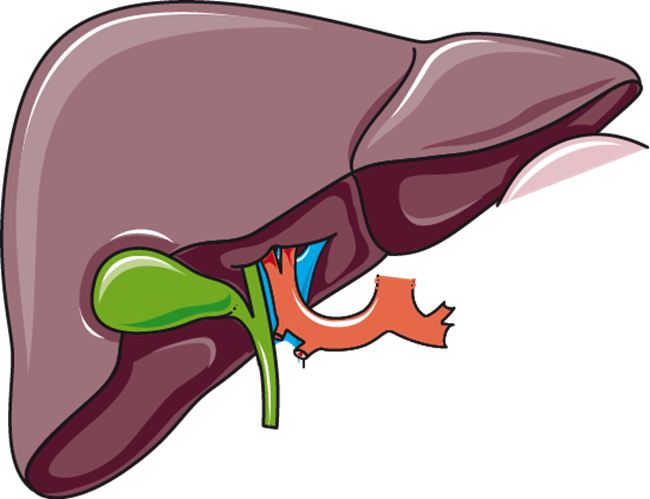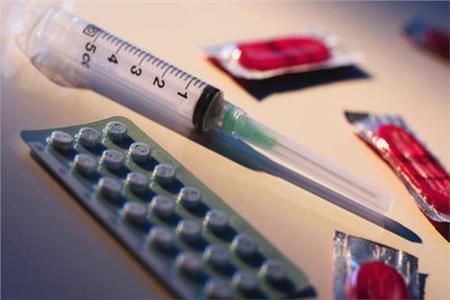Growing up and going through womanhood, birth, periods, our cycles, and hormones seem to be shoved under the rug as some deep, dark, and gross secret of society. Looking back, I wish things were different. I feel as though women would feel more empowered by these things, rather than looked down on.
At 19 years old, I was about seven years in on heavy periods, bad cramps, and PMS like no other. Out of a hasty decision, I figured, why not start birth control? This day in age, there are a lot of websites that make it extremely easy to get on any birth control. I found out about the app Nurx and got the ball rolling. The process of getting on the pill consisted of an online health test, some other questions, and what type of birth control you want to be on. I figured to be on the one my friends were on, thinking it was the best option.
Severe Mood Swings, Painful Breasts, and Intense Hunger
I selected Junel Fe as my pill if choice. The first few months were horrid. I napped a lot, my breasts grew TWO cup sizes and were painful all month, I was hungry 24/7, and was severely anxious and depressed. Only plus side was no cramps or heavy bleeding.
I was already prone to anxiety before the pill, but this was another level. I had horrible intrusive thoughts and was scared for my personal well-being. I contacted Nurx (they had doctors available for chat), and they switched me to Lutera. I felt much better after this but wouldn’t notice what the pill was doing to me until two years later.
Looking back, the pill put me in a state of being super low or super high. I was extremely sporadic in my moods, emotional, and shut myself out from the world. It put a huge strain on my relationships with friends, family, my boyfriend, and myself.
Skipping a Period and New Onset Headache
I took my pill each day at the same time, followed the rules, everything. Forward to summer of 2022, I was getting ready for vacation, and noticed I’d be on my period the week of. I never skipped my period before, but decided it was best for this vacation. Following advice from a friend, I skipped my period (giving me a five-week cycle) then continued as normal (which would give me a three-week cycle next).
Everything was fine until the week after I skipped (my new period week). I developed a headache that lasted a week. The week of a headache, turned into a month. Though my cycle was “back on track”, the headache worsened. It was a sharp pain in my left ear, or a constant dizziness/pressure feeling that prevented me from doing anything. I tried talking to my chiropractor, took multiple visits to the ENT and PCP, I was prescribed antibiotics, told it was stress, and there was nothing to be done.
A loved one made a point, “what if it’s from skipping your period two months ago?”. I brushed it off, but it always stuck in the back of my head. I was now three months into a headache that I had every day. My dizziness got so bad to the point I went to the ER. I was taken in for a CT scan and was given a “migraine cocktail”. As someone with a lot of anxiety, especially regarding her health, I thought the worst case possible, whether it be cancer or a debilitating disease. My CT was clear, thank God. However, I had no answers. I cried every night and felt so defeated. We ruled out nerve problems, TMJ, and major trauma. I then thought of the pill.
After a conversation with my therapist and boyfriend, I decided I wanted to see if this tiny pill truly caused all this damage. I had a neurology appointment coming up and tried to detox my body from the synthetic hormones.
The first few days off the pill (unsure if it was a placebo effect or something) but I felt great. The mental clarity was amazing. My head still hurt, I was still scared, but I felt more “human” again.
I was finally able to see a neurologist. I told her my story, and she agreed the pain could be triggered by the hormonal changes. My blood work came back clear, my MRI and MRA were clear, and my EEG was clear. This made me feel a lot better, but I was still terrified. Luckily, we found a method that worked to help my pain.
Though we managed the migraines, about three months post-pill, the anxiety emerged. I am going to be honest, in my nine years with anxiety, this is the worst it has ever been in my life. Along with physical symptoms like swollen lymph nodes, weakness in my limbs, heart palpitations, hair loss, acne, and being tired 24/7, I truly have never felt worse.
Though I read a lot of this can happen post-pill, I was so terrified for my life. Constantly feeling like something is wrong physically and mentally spiraled me into depression. Part of me still gets scared it is something more serious, and that there is no way the pill, and coming off it, could do this to me. But there is NOTHING else that I have changed besides this.
The feeling of doom and helplessness has been hard, and I know it is a huge process in getting my body and mind back to my pre-birth control self. I am working with a holistic practitioner, therapist, and gynecologist to bring me back to where I once was.
The Pill is a Band-aid
I wish I knew then, what I know now. I wish I knew that the pill depletes you of so many minerals, that it is now considered a carcinogen, and that it’s a band-aid, not a solution. I wish I knew my periods were so bad back then because of my diet and lifestyle, not because “it happens”. I wish I knew what I was getting into.
As for my cycle now, it is regular. I use Natural Cycles tracking. I did not ovulate my first cycle off the pill, but since then I have had normal ovulation and periods. My periods are much more manageable than they used to be, and I feel proud to be a woman and embrace the natural occurrences of my body. I constantly say, “I don’t know, I just feel like a woman again”. I never realized the true numbness the pill caused me to feel.
It is still an uphill battle, and I think it will take a bit for me to feel like myself again. Books regarding the menstrual cycle and hormones have been useful. In the Flo by Alisa Vitti and The Hormone Balance Bible by Dr. Shawn Tassone are my favorites. I have been given supplements and mineral recommendations by my holistic practitioner to take to replenish my body. My diet is centered around hormonal support and I have indulged myself in many new herbal teas and remedies to help me feel better. I have made a lot of lifestyle changes and am creating better habits for myself.
Though it has not been officially “diagnosed”, I do think I fall into the category of post-birth control syndrome. The physical symptoms, anxiety, and depression have been difficult, but I know there is light at the end of the tunnel. Some days are better than others, but no matter what, I am blessed to have seen the brighter side of things and know I will be ok. Just know, you are not alone, it is not just in your head, and I promise, it will get better.
Share Your Experience
If you would like to share your experience with hormonal birth control or any other medication, send us a note.
We Need Your Help
More people than ever are reading Hormones Matter, a testament to the need for independent voices in health and medicine. We are not funded and accept limited advertising. Unlike many health sites, we don’t force you to purchase a subscription. We believe health information should be open to all. If you read Hormones Matter, like it, please help support it. Contribute now.
Yes, I would like to support Hormones Matter.
Photo by Sharon Waldron on Unsplash.















